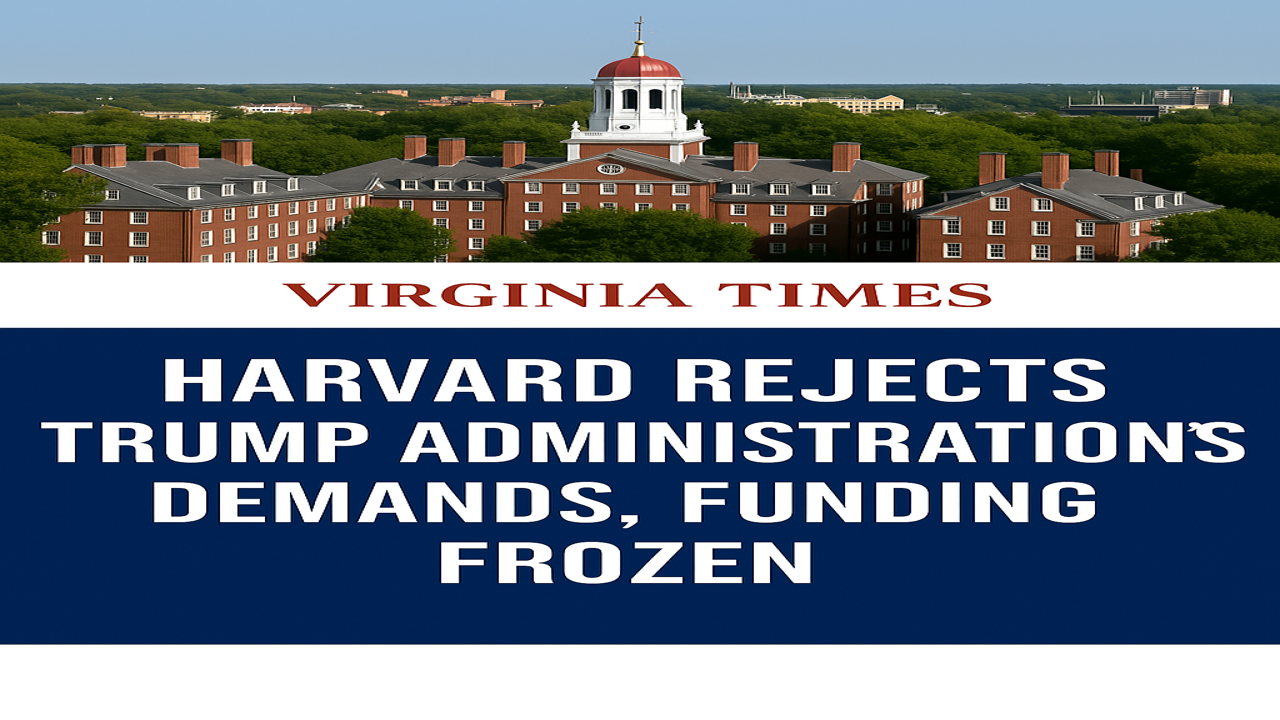Harvard Declines Federal Proposal on Governance and Academic Policy
CAMBRIDGE, MA — Harvard University has rejected a set of proposed reforms from the Trump administration aimed at overhauling its governance, admissions, hiring, and diversity policies. The university’s decision, issued in a letter from President Alan M. Garber, emphasized constitutional protections and academic independence.
According to Harvard Magazine, the federal proposal was outlined in an April 11 letter, which warned that the continuation of Harvard’s federal funding was contingent on adopting several reforms. These included:
- Eliminating diversity, equity, and inclusion (DEI) programs.
- Restructuring governance to reduce the influence of activist faculty.
- Adopting race-neutral hiring and admissions policies.
- Auditing student and faculty ideological diversity.
- Reviewing international student admissions for alignment with U.S. constitutional values.
- Disciplinary action for past campus incidents, including expulsions.
President Garber stated that while Harvard remains committed to addressing antisemitism, it cannot accept federal mandates that, in his view, violate constitutional protections. “The University will not surrender its independence or relinquish its constitutional rights,” Garber wrote.
Federal Response: $2.2 Billion in Funding Frozen
Shortly after Harvard’s announcement, the Joint Task Force to Combat Anti-Semitism, which coordinated the proposal, announced an immediate freeze on $2.2 billion in federal grants and $60 million in multiyear contracts. These funds are largely tied to research initiatives, including at Harvard-affiliated medical institutions.
In a press release issued by the Department of Education, the task force stated:
“The harassment of Jewish students is intolerable. It is time for elite universities to take the problem seriously and commit to meaningful change if they wish to continue receiving taxpayer support.”
The task force did not provide public documentation of specific violations or investigative findings but argued that its measures are designed to enforce civil rights protections under Title VI of the Civil Rights Act.
Broader Context: Scrutiny of U.S. Universities
The funding freeze is part of a broader federal effort to address reported incidents of antisemitism and campus unrest. Other universities, including Columbia, Cornell, Princeton, Brown, and Northwestern, are also under review.
In March, Columbia University became the first institution to face federal action, with $400 million in funding suspended amid controversy surrounding pro-Palestinian protests.
The administration’s efforts have been framed as an attempt to ensure that federally funded institutions uphold both academic freedom and civil rights. However, legal scholars and academic leaders have raised concerns about potential overreach.
Harvard’s Position: Support for Inclusion, Defense of Autonomy
In his community message, President Garber emphasized that Harvard will continue to take steps to address antisemitism, consistent with legal standards, while also preserving open inquiry and academic freedom.
“Although some of the demands outlined by the government are aimed at combating antisemitism, the majority represent direct governmental regulation of the ‘intellectual conditions’ at Harvard,” Garber wrote.
Garber also reaffirmed Harvard’s compliance with the Supreme Court’s ruling in Students for Fair Admissions v. Harvard, which prohibits race-based admissions, and outlined steps taken over the past year to address campus tensions.
The university committed to:
- Supporting free expression and viewpoint diversity.
- Ensuring fairness in disciplinary processes.
- Maintaining compliance with civil rights law.
What Comes Next
The freeze of federal funds could have a significant impact on research, particularly in biomedical fields. It also raises broader questions about the limits of federal authority over private institutions.
Observers expect further developments, including possible legal action, as the dispute unfolds. Other institutions under review are reportedly in discussion with federal officials to clarify expectations and resolve pending investigations
A global media for the latest news, entertainment, music fashion, and more.





